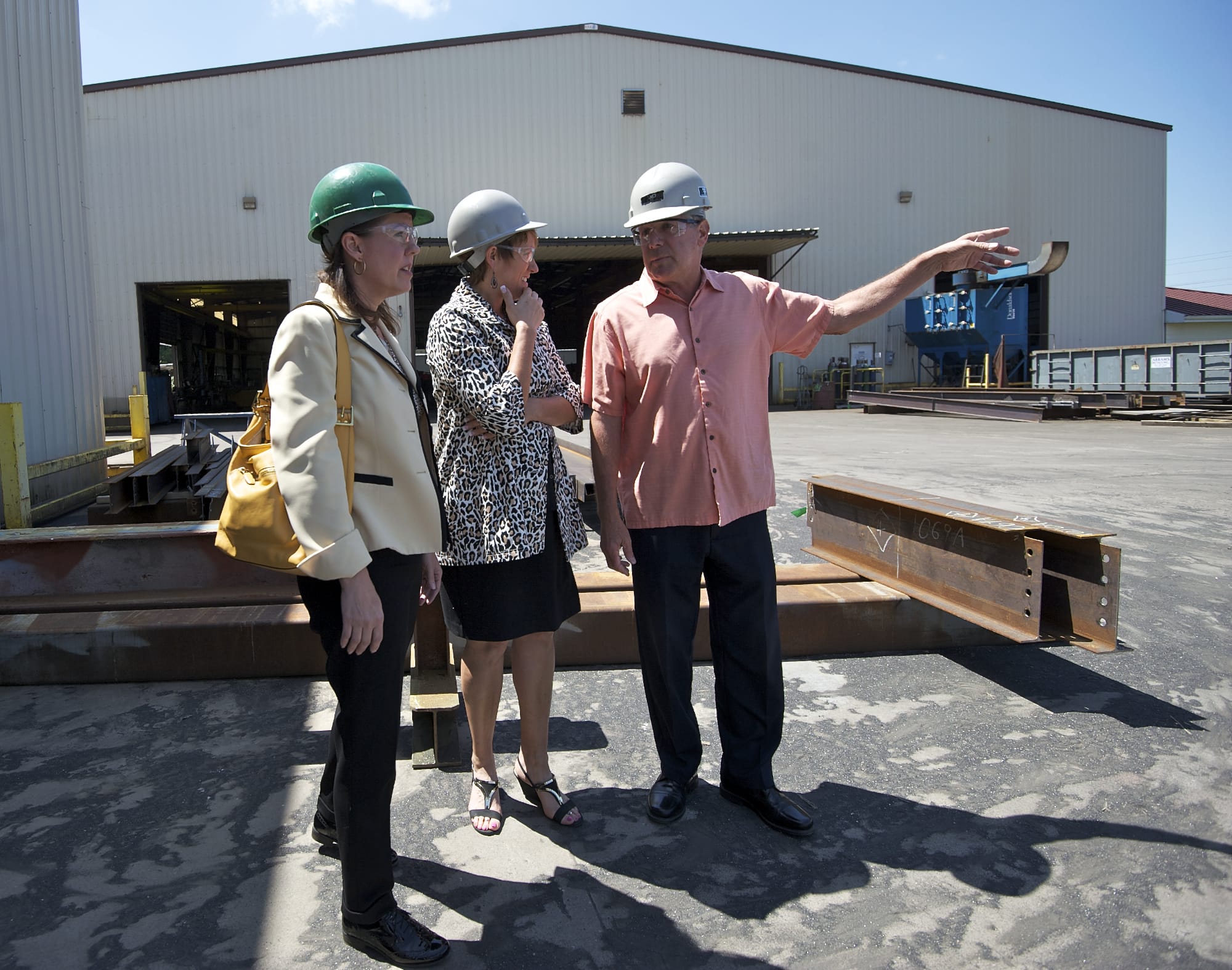Ron Jones refuses to bid on public works projects.
It’s partly out of principle. But mainly, it’s the reality that his company, Fabrication Products Inc. in Vancouver, can’t compete, he said.
His proposal would need to carve out wage requirements that include $31.44 an hour for a welder and $30.27 for a painter. If his company were in King County, the state’s prevailing wage law would require he pay $15.48 an hour for a welder and $11.10 for a painter.
“My people and this company are missing opportunities,” Jones said.
The battle over prevailing wages is not new, but it looks like it could be fought once again this winter in Olympia. State Sen. Ann Rivers, R-La Center, and state Rep. Liz Pike, R-Camas, toured Jones’ 33,000-square-foot warehouse Monday afternoon. Pike is already working to craft a wide range of potential legislation, including limiting the prevailing wage law to certain types of projects, and creating the same statewide rate for all counties to use.
Prevailing wage law in Washington requires those who bid on public sector projects to pay a minimum amount to the workers they hire. The goal of the law, passed in 1945, is to ensure that public construction projects are built by highly skilled workers and to prevent contractors from outbidding others by simply slashing workers’ wages. Proponents say the law is effective and argue the quality of the projects is better and therefore they last longer.
The law “is meant to protect workers,” said Matthew Erlich, a spokesman with the state’s department of labor and industries.
But Jones said he’s watched his company shrink from 100 workers in 2007 to about 35 employees now. What gets him, he said, is the stark contrast in prevailing wages throughout the state.
The current prevailing wage for his metal fabrication laborers, who do the work “in shop,” is $22.30 an hour in Clark County. The same position in King County is $9.78 an hour, according to information from the state’s Department of Labor and Industries.
“It’s the disparity between wages” that needs to be examined, Pike said.
Altering the state’s prevailing wage law in the Legislature won’t be easy.
State Rep. Jim Moeller, D-Vancouver, whose district encompasses Fabrication Products, introduced legislation in the previous session that would have extended prevailing wages to include private sector projects that benefit from state tax incentives.
Labor should be considered a company’s great asset, Moeller told The Columbian in a previous interview.
“I’m always in favor of paying workers more,” he said at that time. Moeller could not be reached for comment Monday.
The Department of Labor and Industries sets prevailing wage numbers based on surveys it sends to companies asking what they paid their employees in a specific period of time.
Jones said at this point he only has a few options: “Close up shop, give up and roll over.” Or, his favorite option, which is work to “level the playing field.”




